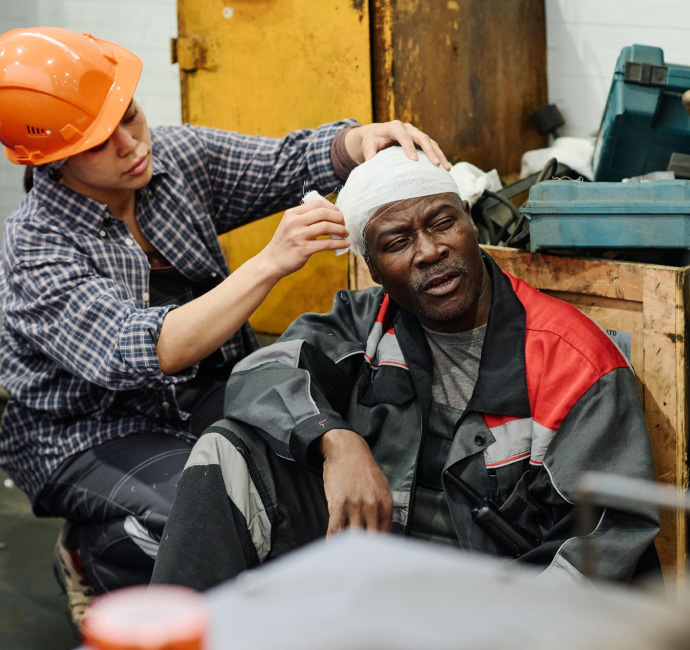Work Related Accidents
In New York, work-related injuries or illnesses may qualify you for Workers’ Compensation, covering medical costs, wage loss, permanent injury, and out-of-pocket expenses.
Workers’ Compensation: Benefits, Eligibility, and Restrictions
You may be eligible for Workers’ Compensation benefits even if you are not a United States citizen or if you work “off the books.” In certain cases, you may be eligible for Workers’ Compensation benefits for injuries or illnesses that occur before or after work hours. However, the Workers’ Compensation Law places restrictions on how you can prove your claim.
In a workers’ compensation case, no one party is determined to be at fault. The amount that a claimant receives is not decreased by his/her carelessness, nor increased by an employer’s fault. However, a worker loses his/her right to workers’ compensation if the injury results solely from his/her intoxication from drugs or alcohol, or from the intent to injure him/herself or someone else.
Why Choose Us

Decades of Experience
We have successfully handled thousands of personal injury cases, recovering 2+ million in compensation for our clients.

24/7 Availability
We offer round-the-clock support and free consultations to ensure you get the help you need when you need it.

Client-Focused Approach
We believe that every case is unique, which is why we provide customized legal strategies tailored to the specific needs of each client.
Workers’ Compensation: Benefits, Eligibility, and Restrictions
You may be eligible for Workers’ Compensation benefits even if you are not a United States citizen or if you work “off the books.” In certain cases, you may be eligible for Workers’ Compensation benefits for injuries or illnesses that occur before or after work hours. However, the Workers’ Compensation Law places restrictions on how you can prove your claim.
In a workers’ compensation case, no one party is determined to be at fault. The amount that a claimant receives is not decreased by his/her carelessness, nor increased by an employer’s fault. However, a worker loses his/her right to workers’ compensation if the injury results solely from his/her intoxication from drugs or alcohol, or from the intent to injure him/herself or someone else.
Tips for a Work Related Accidents case
1. OBTAIN first aid or other necessary medical treatment as soon as possible. The treating health care provider must be authorized by the Workers’ Compensation Board, except in an emergency situation.
2. Immediately notify your employer about your injury or illness. Ask for the name, address and phone number of the Workers’ Compensation insurance company. An injured employee who fails to inform his or her employer, in writing, within 30 days after the date of the accident causing the injury, may lose the right to workers’ compensation benefits
3. Immediately notify your employer about your injury or illness. Ask for the name, address and phone number of the Workers’ Compensation insurance company. An injured employee who fails to inform his or her employer, in writing, within 30 days after the date of the accident causing the injury, may lose the right to workers’ compensation benefits

Navigating the Workers’ Compensation Claim Approval Process
A claim is paid if the employer or insurance carrier agrees that the injury or illness is work-related. If the employer or insurance carrier disputes the claim, no cash benefits are paid until the Workers’ Compensation Law Judge decides who is right. If a worker is not receiving benefits because the employer or insurance carrier is arguing that the injury is not job-related, he/she may be eligible for Disability Benefits in the meantime.
